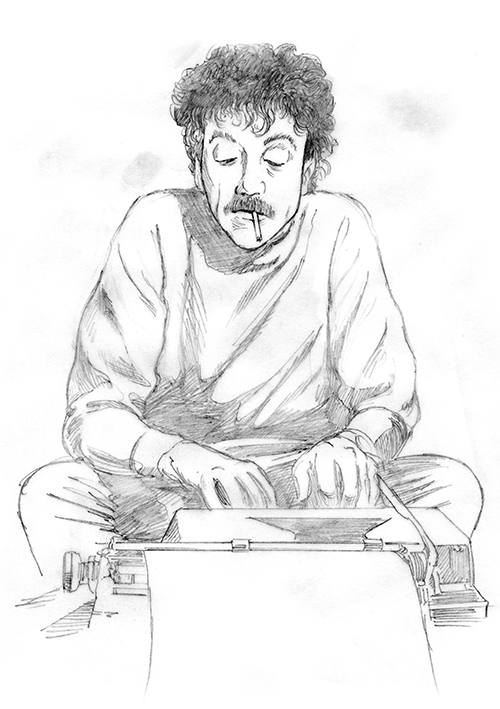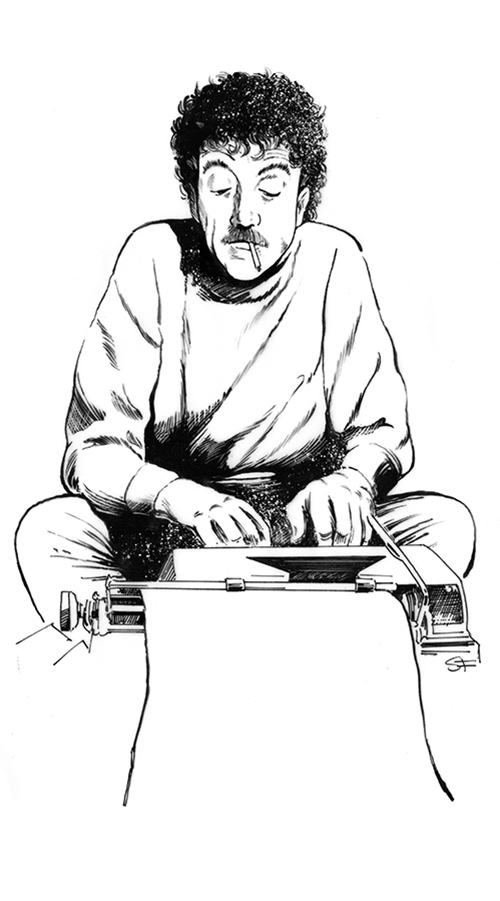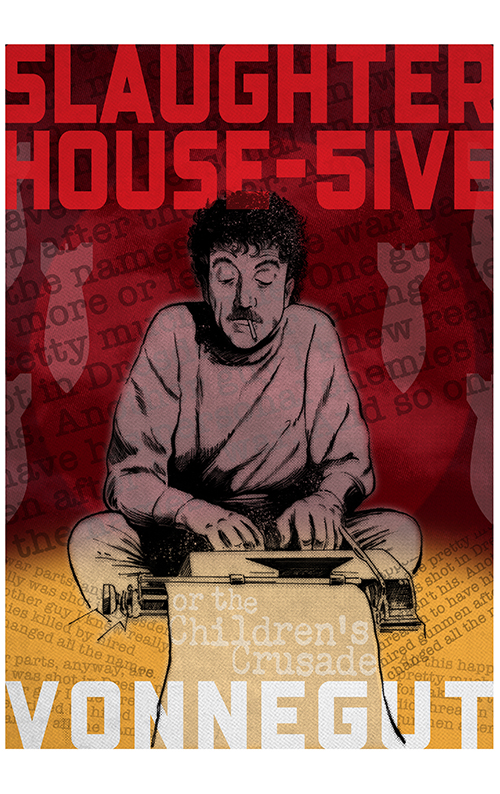


KURT VONNEGUT
(1922- 2007)
Kurt Vonnegut is one of the most significant authors of the 20th century, creating satirical and darkly humorous works such as Cat’s Cradle, Breakfast Of Champions, and Slaughterhouse Five. His work is a dynamic mesh of contradictions: both science fiction and literary, dark and funny, classic and counter-culture, warm-hearted and ice cold. And completely unique.
Born and raised in Indianapolis, Vonnegut enrolled at Cornell University in Ithaca, New York before leaving in 1943 to enlist in the U.S. Army. He returned home in 1944 on leave for Mother’s Day, only to discover that his mother committed suicide the previous night. Factors that may have contributed to Edith Vonnegut’s suicide include her son’s upcoming deployment overseas, and her own lack of success as a writer.
Six months later Vonnegut was in Europe fighting in the Battle of the Bulge, where his troop was captured by the Germans and taken by boxcar to a POW camp in Dresden. He was one of the few survivors of the firebombing of Dresden in February 1945 where about 25,000 civilians were killed. Vonnegut and other American prisoners were put to work immediately after the bombing, pulling bodies from the rubble.
In the early 1950s Vonnegut began publishing short stories. Many of them were concerned with technology and the future, which led some critics to classify Vonnegut as a science fiction writer.
Although his work had gained a popular audience by the late 1960s, the publication of Slaughterhouse-Five; or, The Children’s Crusade (1969) cemented his reputation. Explicitly drawing on his Dresden experience, Vonnegut crafted an absurdist nonlinear narrative in which the bombing raid serves as a symbol of the cruelty and destructiveness of war.
Slaughterhouse-Five has become a modern-day classic.
“How nice — to feel nothing, and still get full credit for being alive.”
Slaughterhouse-Five
REQUIEM (ending)
When the last living thing
has died on account of us,
how poetical it would be
if Earth could say,
in a voice floating up
perhaps from the floor
of the Grand Canyon,
“It is done.”
People did not like it here.
Kurt Vonnegut, 2005
